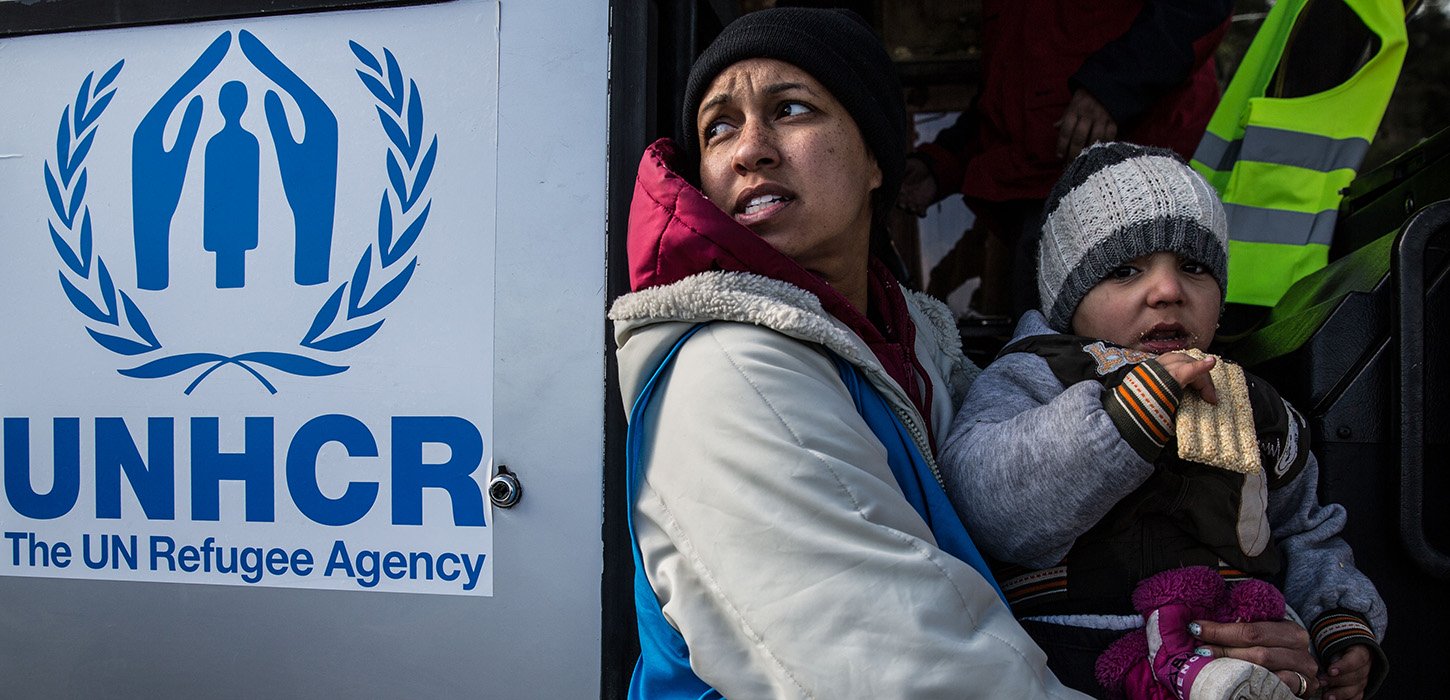UNHCR, the UN Refugee Agency, is dedicated to saving lives, protecting rights and building a better future for refugees, forcibly displaced communities and stateless people. We work to ensure that everybody has the right to seek asylum and find safe refuge, having fled violence, persecution, war or disaster at home. Since 1950, we have faced multiple crises on multiple continents, and provided vital assistance to refugees, asylum-seekers, internally displaced and stateless people, many of whom have nobody left to turn to.
We help to save lives and build better futures for millions forced from home.
Coronavirus Emergency
COVID-19, the coronavirus pandemic, endangers everyone on the planet – including refugees and other people displaced by conflict or persecution.
UNHCR is stepping up health, water, sanitation and hygiene services to protect refugees and displaced people. We are working with governments, which lead the coronavirus response, to ensure that people forced to flee are included in preparation and response plans. Read the latest updates here.
Over 80 per cent of the world’s refugees and nearly all the world’s internally displaced people are hosted in low- and middle-income countries. They frequently face specific challenges and vulnerabilities that must be taken into consideration in COVID-19 readiness and response operations. Keeping the most vulnerable safe means keeping everyone safe. Read abou tour latest response here.
Rohingya Emergency
Over 761,000 Rohingya refugees have been fleeing violence in Myanmar at a staggering rate. The Rohingya are a stateless Muslim minority in Myanmar. The latest exodus began on 25 August 2017, when violence broke out in Myanmar’s Rakhine State. They’ve walked for days through jungles and mountains, or braved dangerous sea voyages across the Bay of Bengal. They are exhausted, hungry and sick – in need of international protection and humanitarian assistance. The vast majority are women and children, including newborn babies born en route. Many others are elderly requiring additional aid and protection.
UNHCR is providing emergency shelter and life-saving relief items to families upon arrival and continuing to identify the most vulnerable among them, such as unaccompanied children, pregnant women, the elderly, victims of sexual and gender-based violence and the disabled.
South Sudan Emergency
Since December 2013, brutal conflict in South Sudan has claimed thousands of lives and driven nearly four million people from their homes. More than two million refugees have fled to neighbouring countries; Uganda is generously hosting over one million refugees, but resources and capacity are being stretched thin. The majority of refugees are women and children, arriving weak and malnourished, sometimes separated from family members and witnesses to unthinkable violence and loss. UNHCR is across the region providing emergency assistance and protection, supporting refugees and host communities alike, leading the humanitarian response.
To maintain this capacity, our agency has developed regular training programmes. They include the Workshop on Emergency Management, which prepares all volunteers listed on our Emergency Response Team (ERT) rosters for any impending humanitarian crisis. This week-long exercise is held three to four times a year for up to 40 people and focuses on team-building, operations planning, communication and negotiation skills, security, and more.
UNHCR’s eCentre in Bangkok also helps to improve emergency preparedness and response capabilities in the Asia-Pacific region through targeted training and other capacity-building measures. Additionally, we contribute to inter-agency initiatives to enhance early warning and preparedness.
Central African Republic Emergency
Brutal violence and political instability in the Central African Republic has forced hundreds of thousands to flee their homes in order to find safety. Today over 542,000 CAR refugees have been forced to flee to Cameroon, Chad, the Democratic Republic of the Congo, Chad, and the Republic of the Congo, and some 600,000 people are still internally displaced inside CAR.
The number of people forced to flee to neighbouring countries or within CAR is at its highest ever since the start of the crisis in 2013. One of the largest refugee crises in Africa and yet it is one of the most poorly funded emergencies across the world – funded only at 9% – with most lacking even basic survival assistance.
Yemen Emergency
Millions have fled their homes in Yemen as the devastating conflict continues to rage unabated throughout the country. 18.8 million Yemenis are in need of humanitarian aid, two million of whom are in utterly desperate conditions deprived of basic needs.
While Yemen continues to host some 280,000 refugees from the Horn of Africa, nearly 200,000 Yemeni refugees have fled to countries in the region. With little to no functional infrastructure or services remaining, outbreaks of cholera, widespread chronic malnutrition and little access to potable water country-wide, the tragedy is only deepening.
Syria Emergency
In its eighth year of conflict, the Syrian Crisis has claimed many lives and left 13.5 million people inside Syria in need, including 6.3 million internally displaced people and over 5.5 million refugees seeking safety in Turkey, Lebanon, Jordan and beyond. UNHCR leads the regional response to offer a lifeline to those in need. Turkey alone hosts nearly 3 million Syrian refugees.
In Lebanon and Jordan, at least 70% of Syrian refugees live well beneath the poverty line, often hosted by local communities. We provide life-saving humanitarian aid, mostly through cash assistance giving refugees dignity and control to meet their own needs while also infusing cash into the burdened local economies.


